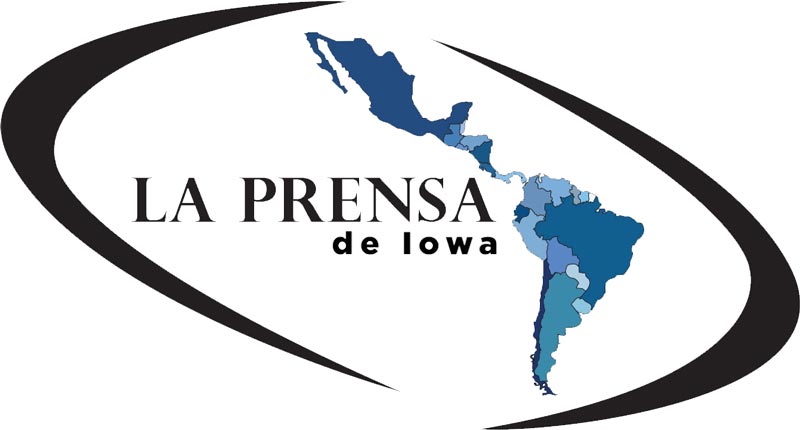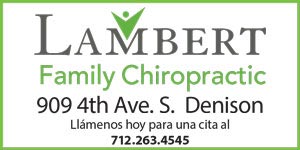Qué necesita saber si ya recibió las dos dosis de la vacuna del covid-19
/⇣ English translation provided at the end ⇣
Redacción
LA PRENSA IOWA
Se considera que las personas completaron las dos dosis de vacunación ya sea de la compañía farmacéutica Pfizer, Moderna o la única dosis con la vacuna Janssen de Johnson & Johnson, dos semanas después con las vacunas de dos dosis o dos semanas después con la vacuna que solo tiene una dosis.
Es importante estar consiente que si la persona vacuna con cualquiera de las tres vacunas, no están protegidas no esta toralmente protegida si no ha dejado pasar por lo menos dos semanas después de la segunda dosis o con la vacuna de única dosis como lo es la Johnson & Johnson.
Según las guias del portal del Centro para el Control y la Prevención de Enfermedades (CCPEEU), también referidos como CDC por las siglas de su nombre en inglés, lo que ha cambiado para las personas que ya obtuvieron las dosis de vacunas es:
Puede reunirse en espacios interiores con personas totalmente vacunadas sin usar mascarilla.
Puede reunirse en espacios interiores con personas no vacunadas de otros hogares (por ejemplo, visitar a familiares que viven juntos) sin mascarilla, a menos que alguna de esas personas o alguien con quien viven tenga mayor riesgo de enfermarse gravemente a causa del COVID-19.
Si ha estado con alguien que tiene COVID-19, no necesita mantenerse alejado de las demás personas o realizarse una prueba de detección a menos que presente síntomas.
No obstante, si vive en un entorno grupal (como una institución correccional o de detención o un hogar grupal) y está con alguien que tiene COVID-19, deberá mantenerse alejado de las demás personas por 14 días y realizarse una prueba de detección, incluso si no presenta síntomas.
¿Qué no ha cambiado?
Por el momento, si ya completó su vacunación:
Debe seguir tomando medidas para protegerse y proteger a los demás en muchas situaciones, como usar mascarilla, mantenerse al menos a 6 pies de distancia de las demás personas, y evitar las multitudes y los espacios con mala ventilación.
De igual manera el CDC orienta a todos los completamente vacunados seguir las siguientes precauciones:
Evitar estar en público
Reunirse con personas no vacunadas de hogar diferente
Visitar a una persona no vacunada que tiene mayor riesgo de enfermarse gravemente o morir a causa del COVID-19 o que vive con una persona con mayor nivel de riesgo
Debe seguir evitando las congregaciones medianas y grandes.
Debe seguir postergando los viajes nacionales e internacionales. Si viaja, debe de cumplir los requisitos y recomendaciones de los CDC.
Debe seguir estando atento a los síntomas del COVID-19, especialmente si ha estado con alguien enfermo. Si tiene síntomas de COVID-19, debe realizarse una prueba de detección, quedarse en casa y mantenerse alejado de las demás personas.
Debe seguir cumpliendo las guías en su lugar de trabajo.
El portal de la Web del CDC es muy enfático al informar que lo que hasta el momento ellos saben y que aún continúan aprendiendo del virus, es que las vacunas contra el COVID-19 son efectivas para prevenir el COVID-19, especialmente la hospitalización y la muerte.
De igual manera puntualizan, aún están aprendiendo cuán efectivas son las vacunas contra las variantes del virus que causa el COVID-19. Los primeros datos muestran que las vacunas podrían funcionar contra algunas de las variantes, pero podrían ser menos efectivas contra otras.
Aunque se sabe que las demás medidas de prevención ayudan a detener la propagación del COVID-19, y que todas las medidas siguen siendo importantes, incluso durante la distribución de las vacunas.
“Aún estamos aprendiendo cuán bien funcionan las vacunas contra el COVID-19 para evitar que las personas propaguen la enfermedad.”
Los primeros datos muestran que las vacunas podrían ayudar a evitar que las personas propaguen el COVID-19, “pero estamos aprendiendo más a medida que más personas se vacunan.”
A medida que se obtenga más información, el CDC continuarán actualizando sus recomendaciones tanto para las personas vacunadas como no vacunadas.
Translation
What you need to know if you have already received both doses of the covid-19 vaccine
Redacción
LA PRENSA IOWA
People are considered to have completed the two doses of vaccination either from the pharmaceutical company Pfizer, Moderna, or the single-dose with Johnson & Johnson's Janssen vaccine, two weeks later with the two-dose vaccines or two weeks later with the vaccine that it only has one dose.
It is important to be aware that if the person vaccinates with any of the three vaccines, they are not protected, they are not fully protected if they have not missed at least two weeks after the second dose or with the single-dose vaccine such as Johnson. & Johnson.
According to the guidelines of the portal of the Center for Disease Control and Prevention (CCPEEU), also referred to as CDC by the acronym of its name in English, what has changed for people who have already obtained the doses of vaccines is:
You can meet indoors with fully vaccinated people without wearing a mask.
You can gather indoors with unvaccinated people from other households (for example, visiting family members who live together) without a mask, unless one of those people or someone they live with is at higher risk of becoming seriously ill from COVID-19 .
If you've been with someone who has COVID-19, you don't need to stay away from other people or get screened unless you have symptoms.
However, if you live in a group setting (such as a detention or correctional institution or a group home) and are with someone who has COVID-19, you will need to stay away from other people for 14 days and have a screening test, including if you have no symptoms.
What has not changed?
For now, if you have completed your vaccination:
You must continue to take steps to protect yourself and others in many situations, such as wearing a mask, staying at least 6 feet away from other people, and avoiding crowds and poorly ventilated spaces.
In the same way, the CDC advises all those who are fully vaccinated to follow the following precautions:
Avoid being in public
Meet with unvaccinated people from a different household
Visiting an unvaccinated person who is at higher risk of becoming seriously ill or dying from COVID-19 or living with a person at higher risk
You should continue to avoid medium and large congregations.
You should keep putting off domestic and international travel. If you travel, you must meet the requirements and recommendations of the CDC.
You should continue to watch for the symptoms of COVID-19, especially if you have been with someone who is sick. If you have symptoms of COVID-19, you should get screened, stay home, and stay away from other people.
You must continue to adhere to the guidelines in your workplace.
The CDC website is very emphatic in reporting that what they know so far and are still learning about the virus is that COVID-19 vaccines are effective in preventing COVID-19, especially hospitalization and death.
In the same way, they point out, they are still learning how effective vaccines are against the variants of the virus that causes COVID-19. Early data shows that vaccines may work against some of the variants, but maybe less effective against others.
Although other prevention measures are known to help stop the spread of COVID-19, and all measures remain important, even during vaccine distribution.
"We are still learning how well COVID-19 vaccines work to prevent people from spreading the disease."
Early data shows that vaccines could help prevent people from spreading COVID-19, "but we are learning more as more people get vaccinated."
As more information becomes available, the CDC will continue to update its recommendations for both vaccinated and unvaccinated individuals.






































